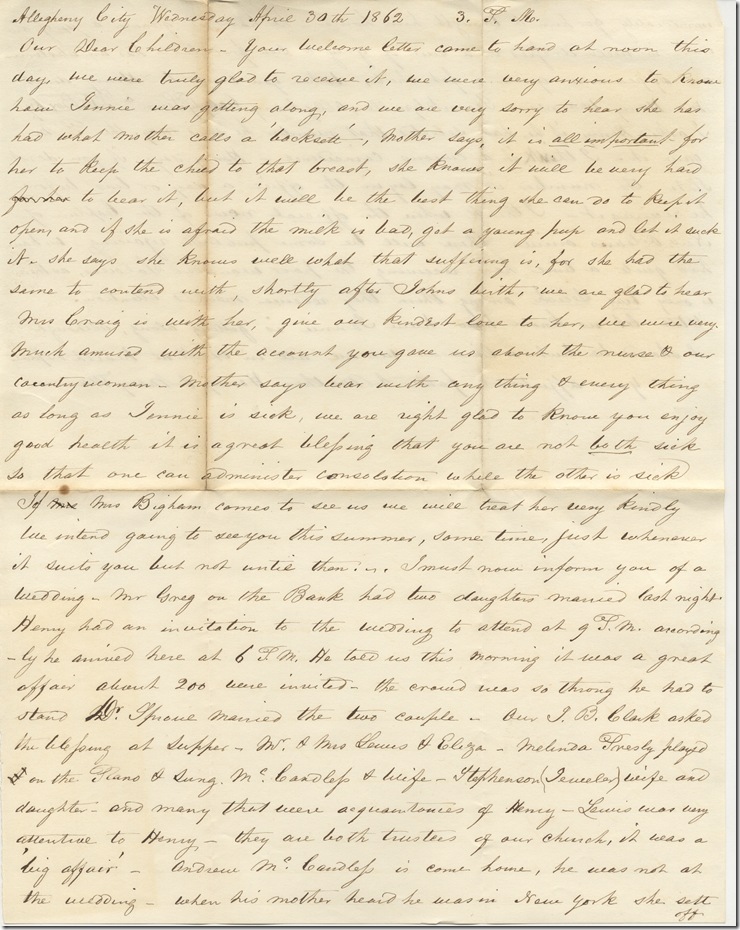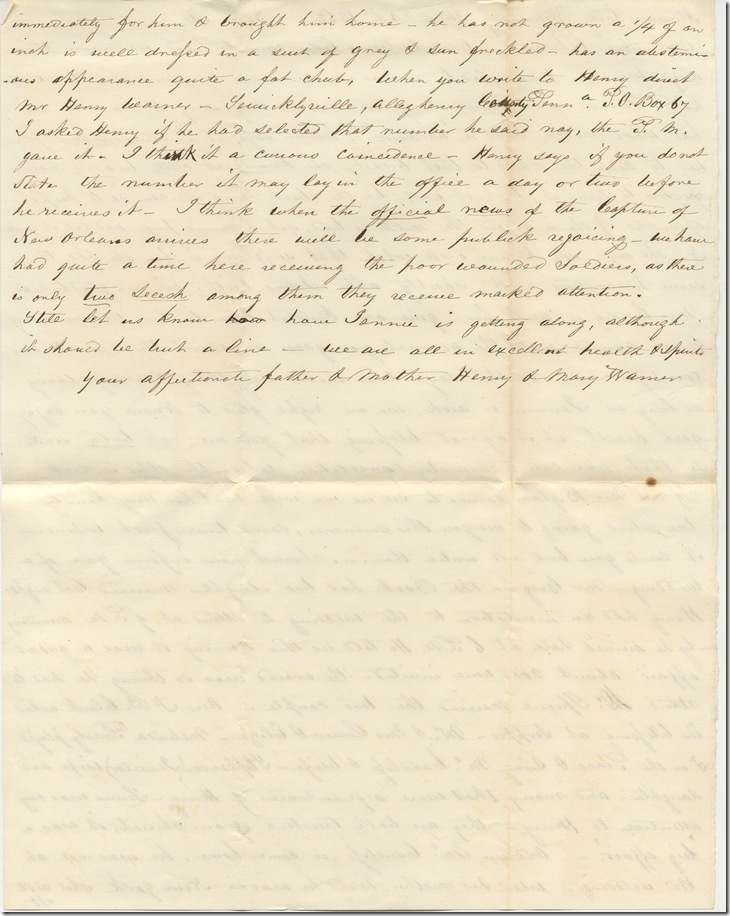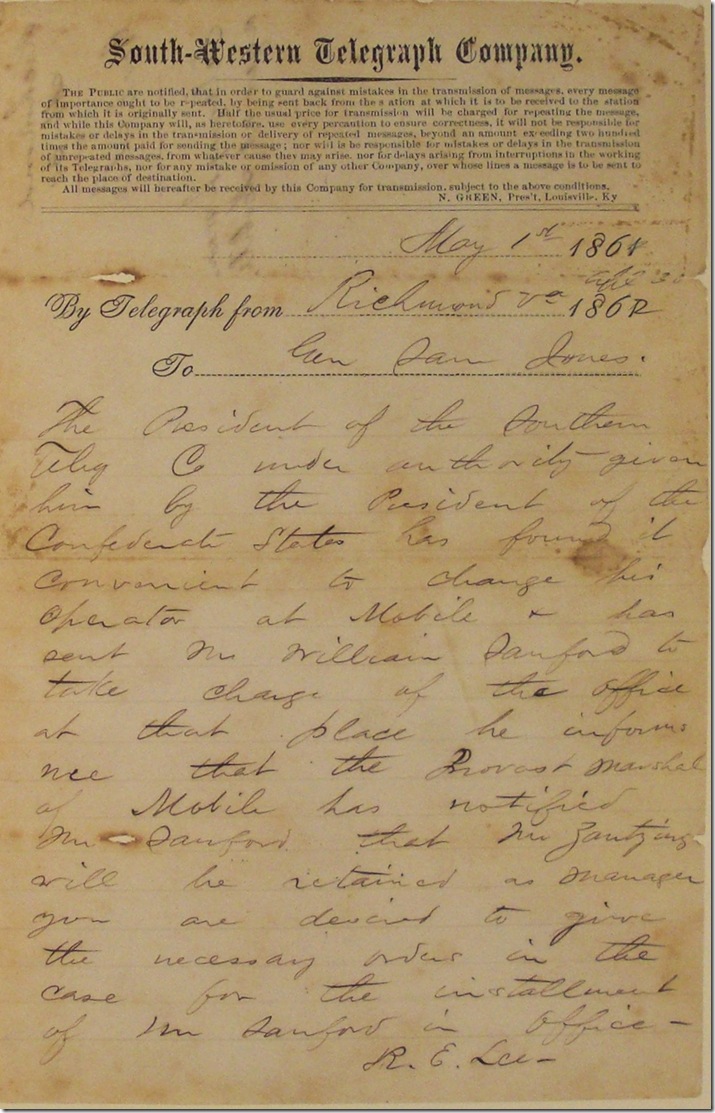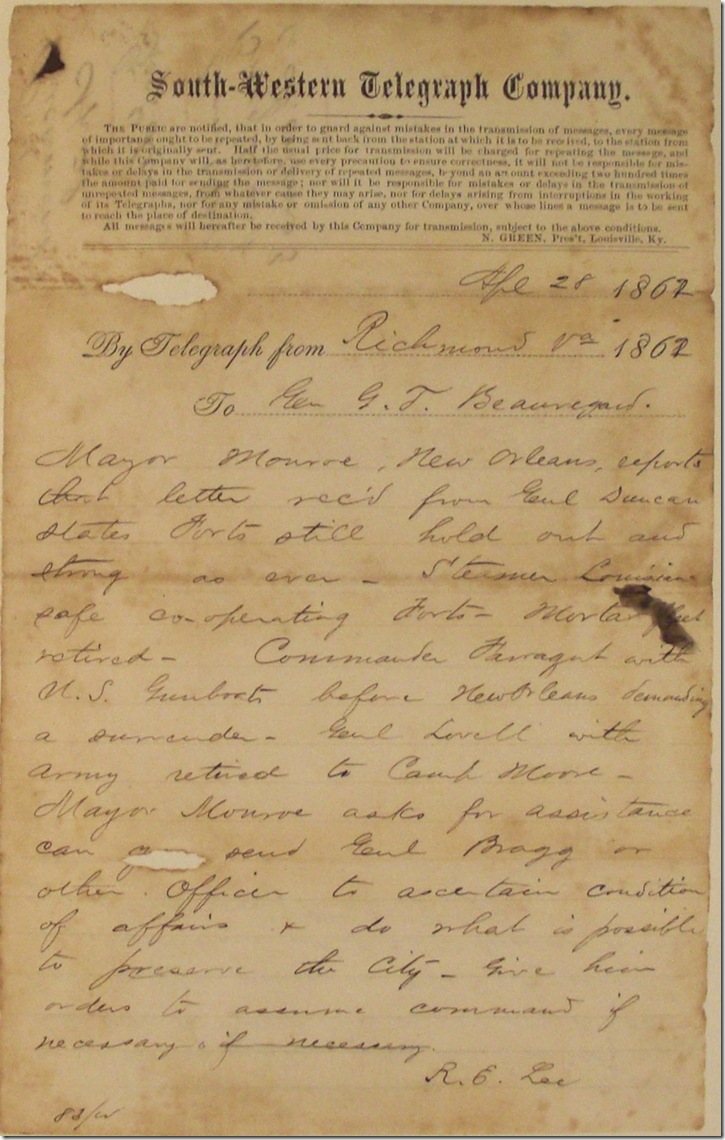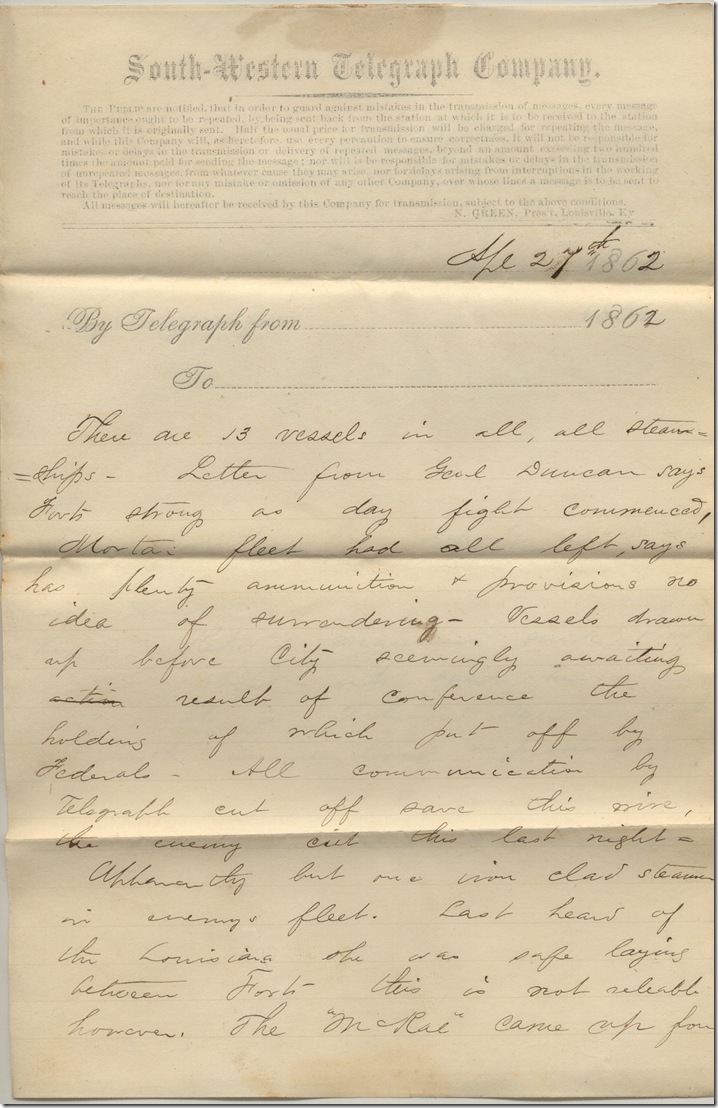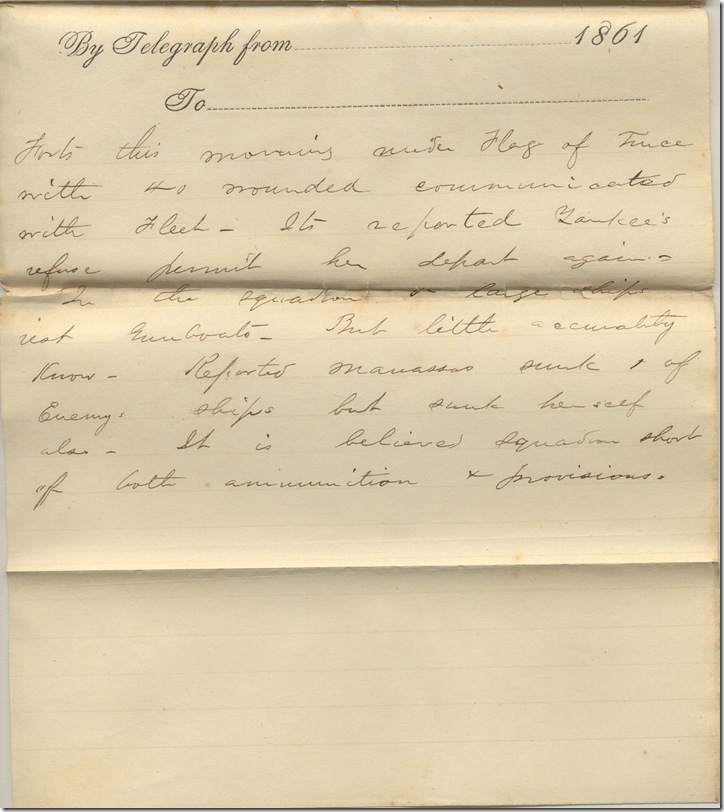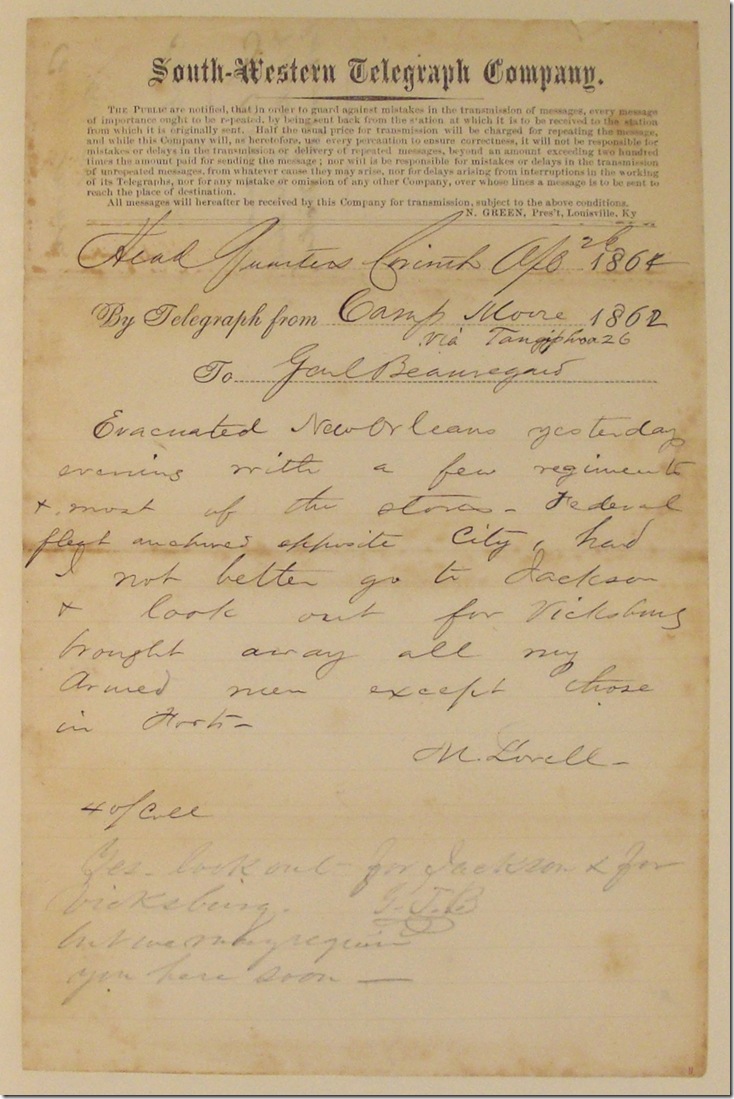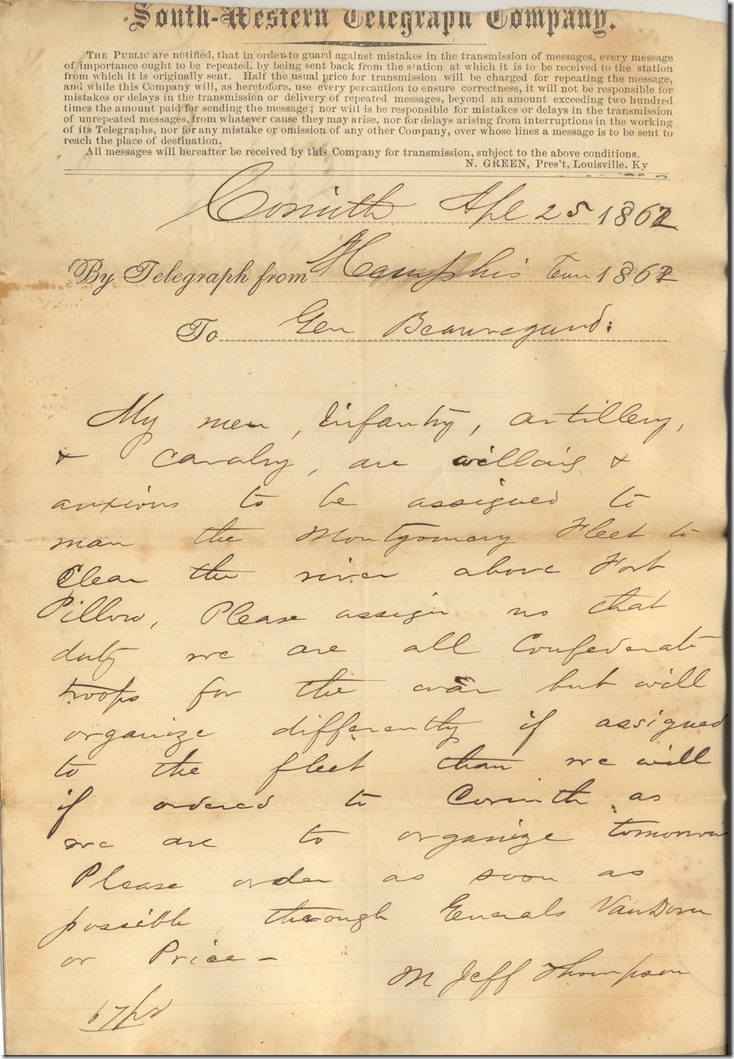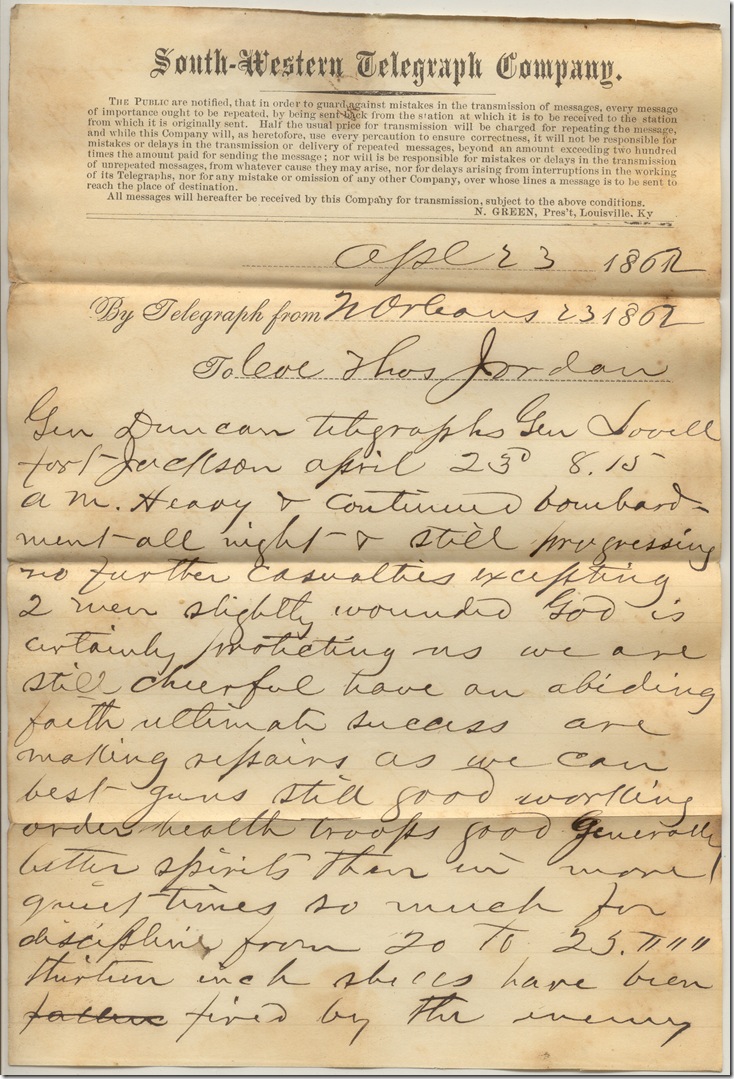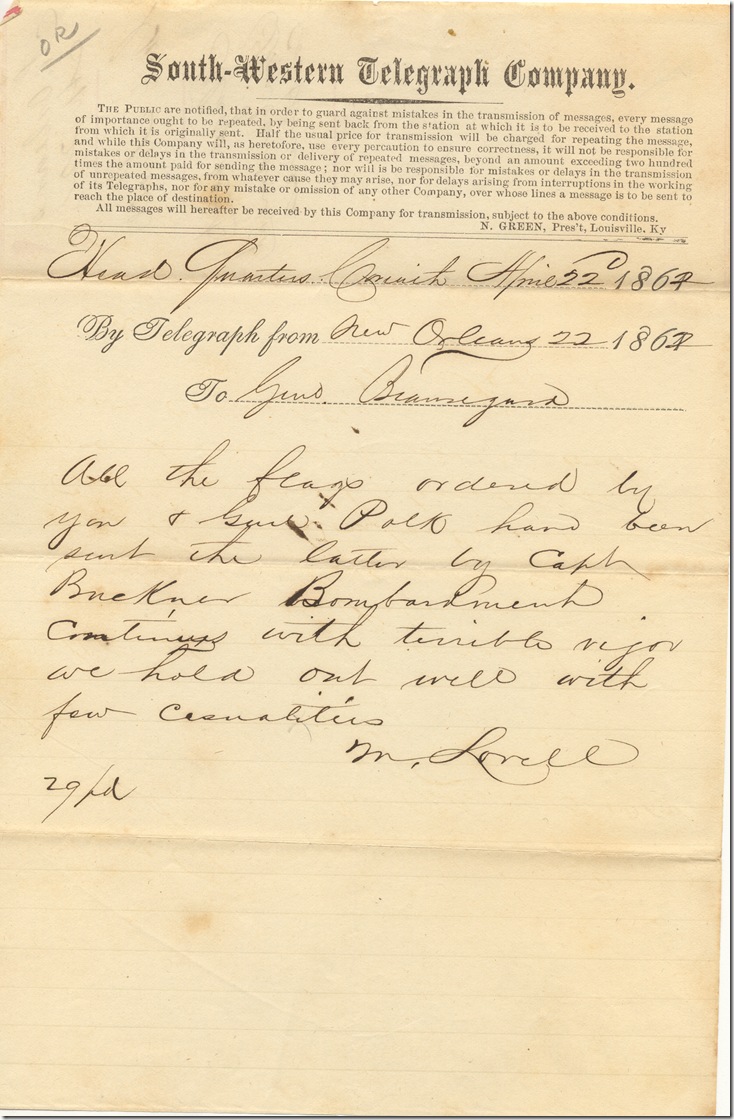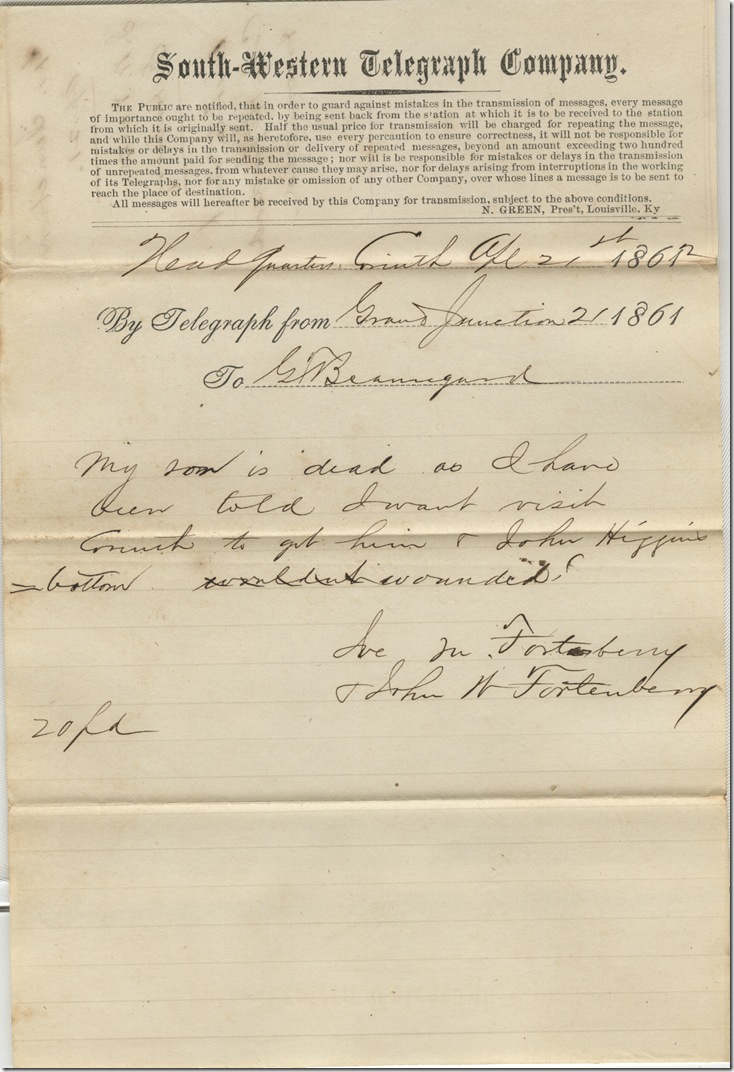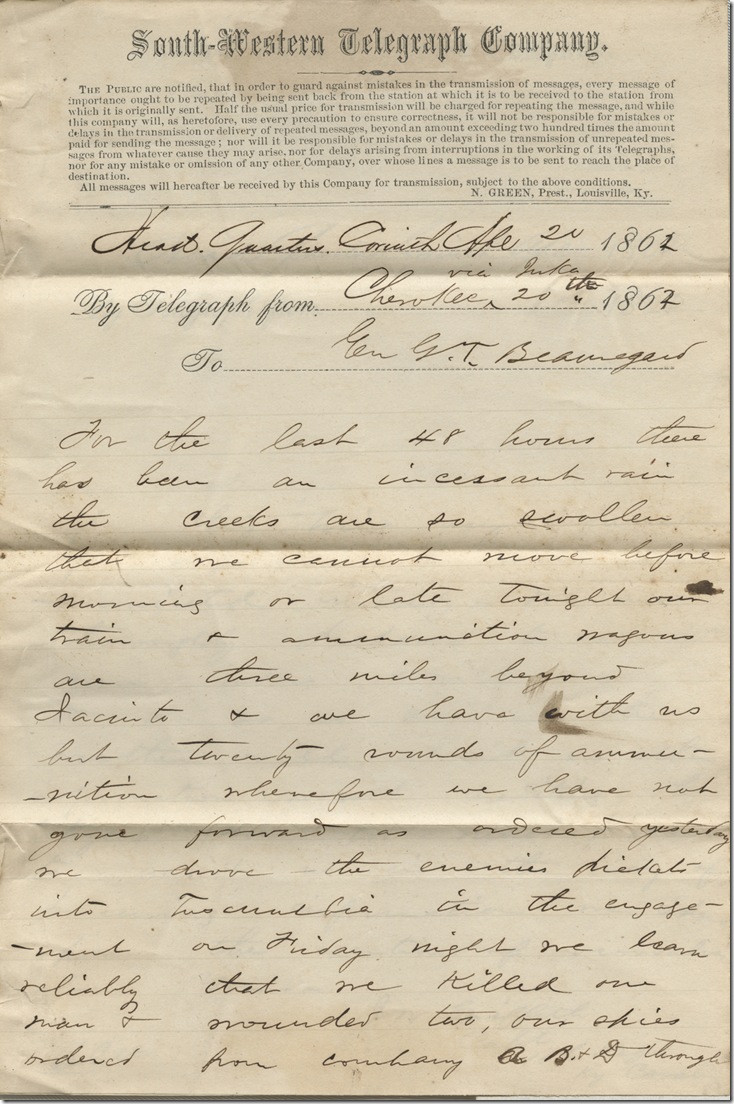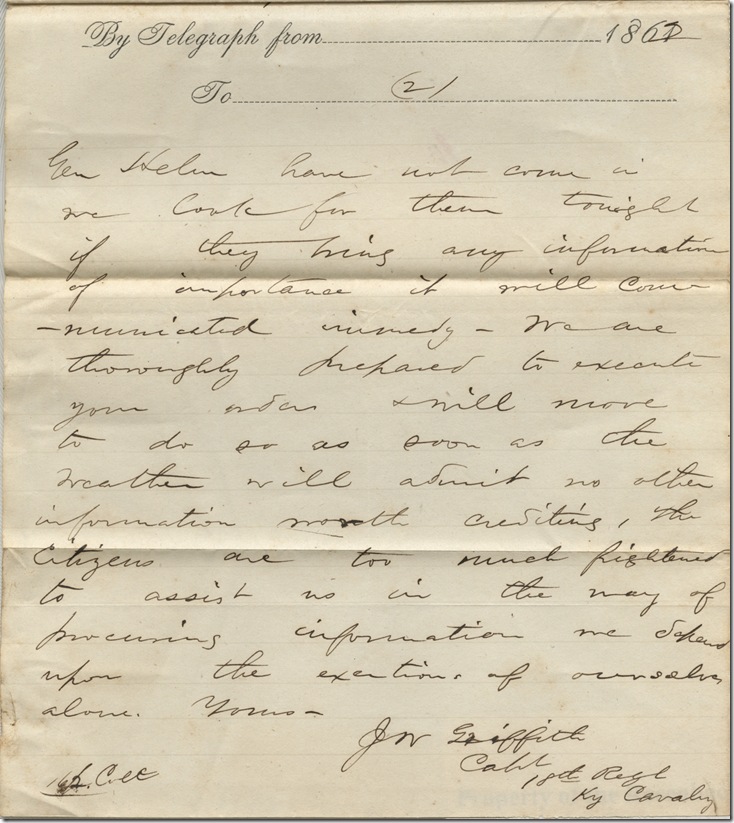Henry and Mary Warner lived in Allegheny City, Pennsylvania, now part of Pittsburgh. They are the great-grandparents of poet Marianne Moore. By the 1860s they had three surviving children: John, Henry, and Anne. Their letters to John, a Presbyterian minister living in Gettysburg, are preserved as part of Marianne Moore’s family papers.
Transcript:
Allegheny City Wednesday April 30th 1862 3 P.M.
Our Dear Children—Your welcome letter came to hand at noon this day, we were truly glad to receive it, we were very anxious to know how Jennie was getting along, and we are very sorry to hear she has had what mother calls a ‘blacksett,’ Mother says, it is all important for her to keep the child to that breast, she knows it will be very hard to bear it, but it will be the best thing she can do to keep it open, and if she is afraid the milk is bad, get a young pup and let it suck it—she says she knows well what that suffering is, for she had the same to contend with, shortly after Johns birth, we are glad to hear Mrs Craig is with her, give our kindest love to her, we were very much amused with the account you gave us about the nurse & our country woman—Mother says bear with any thing & every thing as long as Jennie is sick, we are right glad to know you enjoy good health ti is a great blessing that you are not both sick so that can administer consolation while the other is sick
If Mrs Bigham comes to see us we will treat her very kindly. We intend going to see you this summer, some time, just whenever it suits you but not until then. –. I must now inform you of a wedding—Mr Greg on the Bank had two daughters married last night. Henry had an invitation to the wedding to attend at 9 P.M. accordingly he arrived here at 6 P.M. He told us this morning it was a great affair about 200 were invited—the crowd was so throng he had to stand Dr. Sproule married the two couple—Our J.B. Clark asked the blessing at Supper—Mr. & Mrs Lewis& Eliza—Melinda Presly played on the Piano & sung. McCandless & wife—Stephenson (Jeweler) wife and daughter—and many that were acquaintances of Henry—Lewis was very attentive to Henry—they are both trustees of our church, it was a ‘big affair’—Andrew McCandless is come home, he was not at the wedding—when his mother heard he was in New York she sent off immediately for him & brought him home—he has not grown a ¼ of an inch is well dressed in a suit of grey & sun freckled—has an abstemious appearance quite a fat chub. When you write to Henry direct Mr Henry Warner—Sewickleyville, Allegheny County Penna P.O. Box 67 I asked Henry if he had selected that number he said nay, the P.M. gave it– I think it is a curious coincidence—Henry says if you do not state the number it may lay in the office a day or two before he receives it—I think when the official news of the Capture of New Orleans arrives there will be some publick rejoicing—we have had quite a time here receiving the poor wounded Soldiers, as there is only two Secesh among them they receive marked attention.
Still let us know how Jennie is getting along, although it should be but a line—we are all in excellent health & spirits
Your affectionate father & mother Henry & Mary Warner
Citation: Henry and Mary Warner, autograph letter signed to John Riddle Warner. Allegheny City [Pittsburgh], 30 April 1862. Moore VI:05:05
